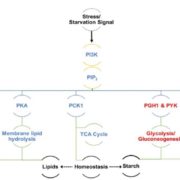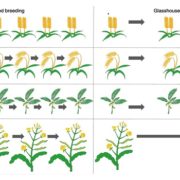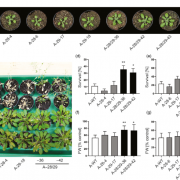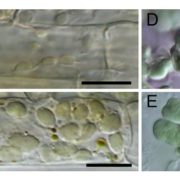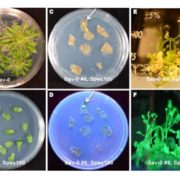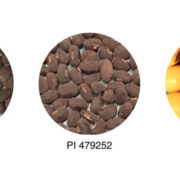A transient approach reduces the time required for transgene-free gene editing
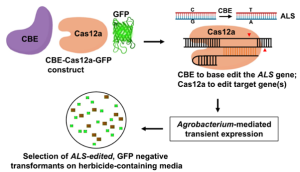 Gene editing in plants is a time-consuming process. One of the challenges of gene editing is to produce transgene-free plants. The transgenes required to carry out selection and editing, such as antibiotic resistance markers and editing enzymes, must be removed, while the edited part of the genome is retained. This selection generally requires 1-3 generations of backcrossing, which takes time, particularly for long-generation species such as perennial plants. Huang et al. have addressed this problem by transiently expressing the gene-editing cassette. Because it is a transient expression, no foreign DNA will get incorporated into the genome. Specifically, the authors transiently expressed a base editor for targeted editing, a target gRNA construct, another gRNA that targets acetolactate synthase, and a GFP construct. While the target site will get a mutation, the other gRNA makes a mutation in acetolactate synthase leading to herbicide tolerance, which serves as a selection marker. Foreign DNA-containing plants show GFP expression, so this provides a negative screenable marker. Using this method, the authors were able to generate transgene-free gene-edited lines in the T0 generation of tomato, tobacco, potato, and citrus. As someone who performed transient assays throughout my PhD, I never imagined such a beautiful application of this technique. (Summary by Kamal Kumar Malukani, @KamalMalukani.) Nature Plants, 10.1038/s41477-023-01520-y.
Gene editing in plants is a time-consuming process. One of the challenges of gene editing is to produce transgene-free plants. The transgenes required to carry out selection and editing, such as antibiotic resistance markers and editing enzymes, must be removed, while the edited part of the genome is retained. This selection generally requires 1-3 generations of backcrossing, which takes time, particularly for long-generation species such as perennial plants. Huang et al. have addressed this problem by transiently expressing the gene-editing cassette. Because it is a transient expression, no foreign DNA will get incorporated into the genome. Specifically, the authors transiently expressed a base editor for targeted editing, a target gRNA construct, another gRNA that targets acetolactate synthase, and a GFP construct. While the target site will get a mutation, the other gRNA makes a mutation in acetolactate synthase leading to herbicide tolerance, which serves as a selection marker. Foreign DNA-containing plants show GFP expression, so this provides a negative screenable marker. Using this method, the authors were able to generate transgene-free gene-edited lines in the T0 generation of tomato, tobacco, potato, and citrus. As someone who performed transient assays throughout my PhD, I never imagined such a beautiful application of this technique. (Summary by Kamal Kumar Malukani, @KamalMalukani.) Nature Plants, 10.1038/s41477-023-01520-y.


